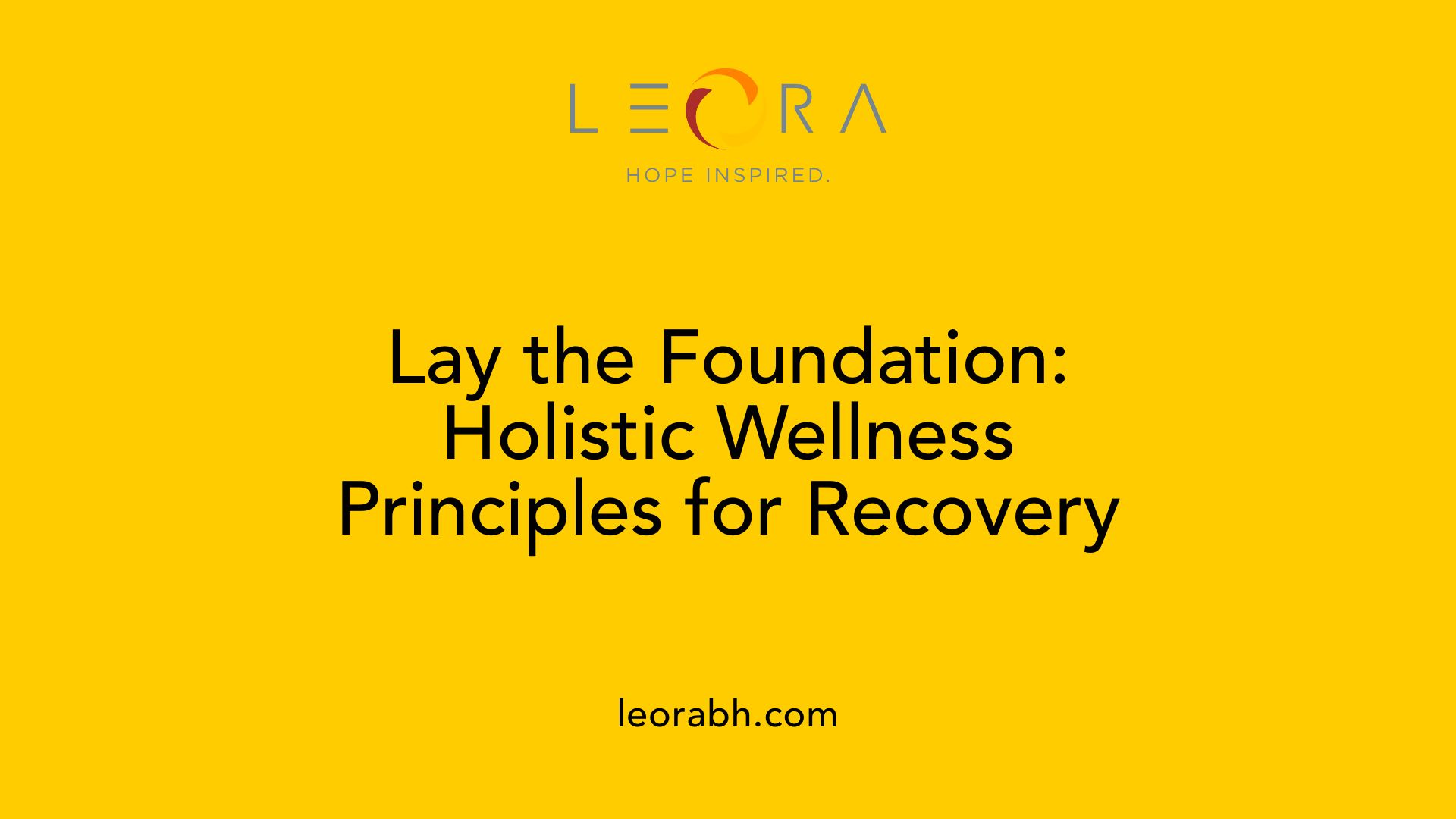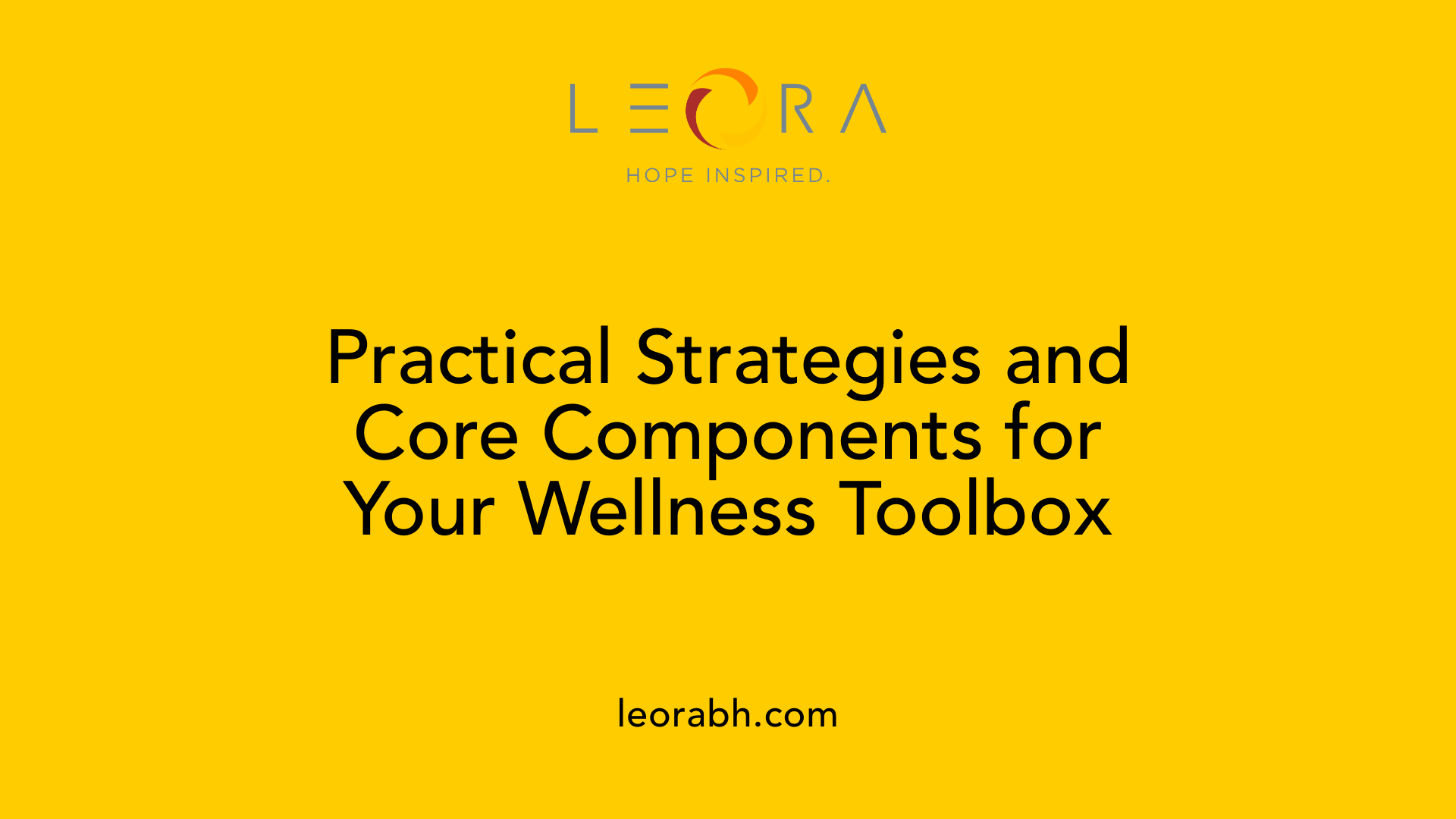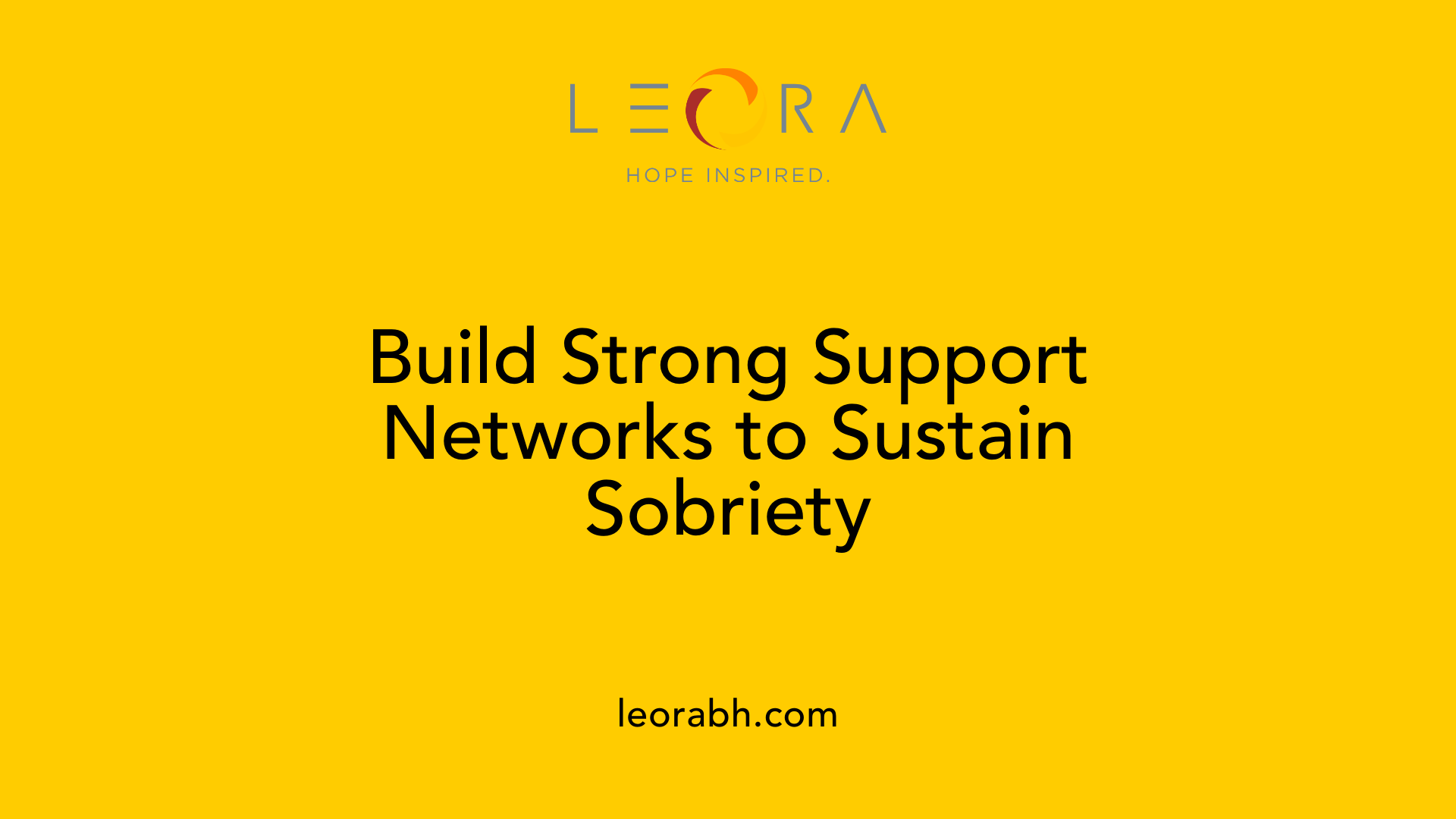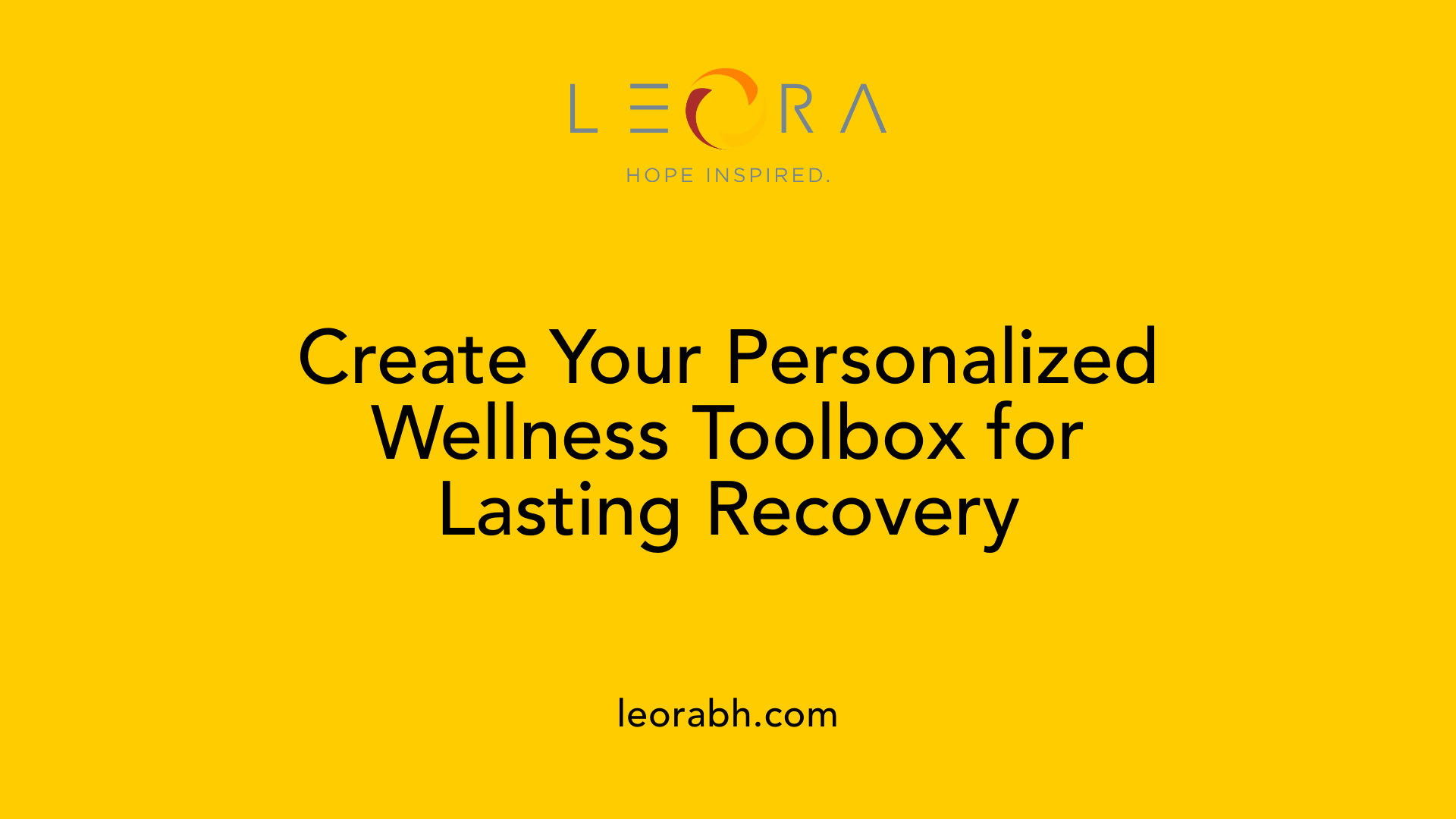How to Create a Wellness Toolbox for Long-Term Sobriety
Building Your Personalized Roadmap to Sustained Sobriety
Empowering Your Recovery Journey with a Customized Wellness Toolbox
Long-term sobriety relies heavily on having a robust, personalized set of strategies and tools to manage stress, triggers, and emotional challenges. Creating a comprehensive wellness toolbox is an essential step for recovery professionals and individuals alike to foster resilience, promote well-being, and sustain sobriety over time. This article explores the process of developing a tailored toolbox, the essential components to include, and ways to organize and adapt these resources to match evolving recovery needs.
Understanding and Developing Your Wellness Foundation

What are holistic wellness principles?
Holistic wellness principles focus on the integration of various aspects of health—physical, mental, emotional, social, spiritual, and environmental—to promote overall well-being. This approach recognizes that each area influences the others; for example, physical health affects emotional resilience, and social connections contribute to mental health. Emphasizing balance and harmony among these domains helps individuals maintain stability and recover from challenges, including addiction.
Key areas of wellness: physical, mental, emotional, social, spiritual, and environmental
| Wellness Area | Focus and Examples | How It Supports Sobriety |
|---|---|---|
| Physical | Nutrition, exercise, sleep, hydration | Improves mood, reduces cravings, boosts energy |
| Mental | Mindfulness, cognitive skills, learning | Enhances resilience, reduces stress |
| Emotional | Self-awareness, self-compassion, journaling | Manages emotions, builds self-esteem |
| Social | Support networks, community involvement | Decreases loneliness, provides accountability |
| Spiritual | Purpose, gratitude, meditation | Fosters hope, significance, and inner strength |
| Environmental | Creating calming spaces, reducing triggers | Promotes safety and comfort in daily life |
Developing a balanced wellness foundation involves nurturing each area with tailored activities and habits. This comprehensive approach encourages a sustainable recovery, helping individuals stay committed to their sobriety journey while enhancing their overall quality of life.
Core Components and Practical Strategies in a Wellness Toolbox

What should be included in a sobriety toolbox for recovery?
A well-rounded sobriety toolbox is crucial for supporting long-term recovery from addiction. It should contain a variety of resources and strategies tailored to individual needs.
Key elements include establishing healthy routines like consistent sleep schedules, balanced nutrition, and regular physical activity such as walking or sports. These routines create a foundation of stability and physical well-being.
Coping techniques such as mindfulness, meditation, deep breathing exercises, and grounding practices help manage cravings and emotional triggers. Engaging in hobbies and enjoyable pursuits like art, music, or sports can boost mood and overall satisfaction.
Emotional and social support are vital components. Participation in support groups like AA or NA, therapy, or maintaining trusted relationships with friends and family provide encouragement and accountability.
Additional tools include positive affirmations, gratitude practices, spiritual activities, and accessing mental health resources or helplines like SAMHSA’s National Helpline. Combining these behavioral, support, and self-care strategies creates a strong personal foundation for maintaining sobriety.
What are some practical activities to include in a wellness toolbox?
A practical wellness toolbox is personalized and diverse, encompassing activities that promote mental, emotional, and physical health. For physical well-being, activities such as walking, cycling, swimming, or participating in fitness classes help release stress and improve health.
Relaxation techniques like yoga, meditation, deep breathing, and guided imagery serve to calm the mind during times of distress. Establishing consistent habits like meal planning, hydration, and a sleep routine support bodily functions.
Mental and emotional wellness can be fostered through journaling, creative outlets such as drawing or music, and positive affirmations to boost confidence. Social activities, such as attending clubs or support groups, encourage connection and reduce feelings of isolation.
Spiritual or purpose-driven pursuits like volunteering, gardening, or practicing gratitude contribute to a sense of fulfillment.
Finally, revisiting and customizing the toolbox regularly ensures it remains relevant and effective. This ongoing review helps individuals adapt their coping strategies to changing circumstances, fostering resilience and a balanced lifestyle.
The Role of Support Networks and Resources
 Participating in support groups is a vital element of maintaining sobriety and emotional well-being. Groups such as Alcoholics Anonymous (AA), Narcotics Anonymous (NA), and SMART Recovery provide individuals with a sense of community, accountability, and shared experience. These groups create safe spaces where members can discuss challenges, celebrate successes, and receive encouragement from peers who understand their journeys.
Participating in support groups is a vital element of maintaining sobriety and emotional well-being. Groups such as Alcoholics Anonymous (AA), Narcotics Anonymous (NA), and SMART Recovery provide individuals with a sense of community, accountability, and shared experience. These groups create safe spaces where members can discuss challenges, celebrate successes, and receive encouragement from peers who understand their journeys.
Professional guidance is equally important. Engaging with counselors, recovery specialists, and mentors offers personalized strategies and psychological support tailored to each person's needs. Certified recovery specialists, in particular, serve as peer-based guides, bridging professional treatment and community resources, which enhances the recovery process.
Building ongoing relationships with support figures—whether through regular group meetings, therapy sessions, or mentorship—helps sustain motivation and provides emotional stability. These connections foster accountability and provide a reliable network during tough times.
Utilizing online and community resources further broadens access to support. Many organizations offer virtual support groups, forums, and educational materials, making help accessible regardless of location. Local community centers often provide workshops and social activities that encourage connection and continuous engagement.
Having a comprehensive and adaptable support system reinforces resilience, encourages adherence to recovery goals, and promotes a positive, sober lifestyle. Combining peer support, professional guidance, and community involvement creates a resilient framework that sustains long-term sobriety and overall well-being.
For those looking to develop their own support network, numerous templates and worksheets are available online. Resources like the Wellness Toolbox worksheet or WRAP templates assist in organizing personalized coping strategies, covering mental health, stress reduction, and daily routines. Creating and revising these tools regularly ensures they stay relevant and effective, empowering individuals to navigate their recovery confidently.
Organizing and Maintaining Your Wellness Toolbox

How can I organize my recovery tools and resources effectively?
Creating a well-structured wellness toolbox is essential for consistent recovery support. Start by personalizing your toolbox to include a diverse range of strategies such as therapy exercises, self-care routines, and support contacts. Incorporate evidence-based tools like the ABC Exercise, Cost Benefit Analysis, and the Create a Change Plan to target specific needs.
Utilize both physical and digital organization methods. For physical tools, use labeled folders or containers dedicated to different categories—stress relief, triggers management, community support, and mindfulness practices. Keep these tools in a visible and accessible location.
Digital organization can involve smartphone apps for journaling, mindfulness, or tracking urges. Online platforms offer tools like virtual support groups and scheduled reminders for regular practices. Organizing tools in folders or notes within your device can help you quickly locate what you need during moments of emotional vulnerability.
Regular review and updates are vital. Set aside time weekly or monthly to reflect on what’s working and what needs adjustment. Add new techniques, replace ineffective strategies, and remove outdated resources to keep your toolbox relevant.
Personalization and flexibility are the cornerstones of an effective toolbox. Reflect on your unique triggers, preferences, and recovery goals to select tools that resonate with you. Flexibility allows you to adapt your toolbox as your needs evolve, ensuring you always have relevant and effective support strategies at hand.
Building a robust, organized, and adaptable wellness toolbox empowers you to manage challenges proactively, fostering resilience and sustained recovery. Regular maintenance of this personal resource can make a significant difference in your overall well-being.
Continuing Your Wellness Journey
Creating and maintaining a personalized wellness toolbox is an ongoing process that plays a vital role in supporting long-term sobriety. By thoughtfully selecting and organizing strategies across physical, mental, emotional, social, and spiritual domains, individuals can build resilience and foster holistic health. Regular reflection, flexibility, and active engagement with support systems ensure that the toolbox evolves alongside recovery needs. Embracing this personalized approach not only helps in managing daily challenges but also empowers individuals to lead fulfilling, balanced lives with confidence and hope.
References
- Developing a Wellness Toolbox - Wellness Recovery Action Plan
- SMART Recovery Toolbox
- Build a Wellness Toolbox for Recovery
- How to Build a Strong Support System in Recovery
- Create a Personalized Self-Care Toolkit for Recovery | WRAP
- Sober Tools: Tips for Building a Sobriety Toolbox
- National Helpline for Mental Health, Drug, Alcohol Issues - SAMHSA
Find Your Inner Light
Related Articles
Schedule an Assessment
Leora Behavioral Health provides comprehensive treatment services, including ambulatory detox, mental health IOP, and SUD IOP, to support your journey toward lasting recovery.
Our caring team will guide you through the admissions process and create a personalized treatment plan tailored to your unique needs. We welcome walk-ins. If you or a loved one is struggling, reach out today. We’re here to help.


.svg)




.svg)
.svg)
.svg)
.svg)
